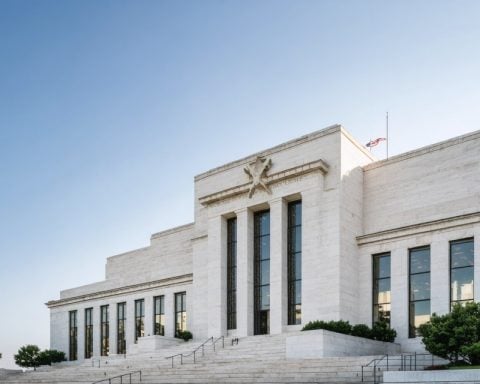Rawalpindi’s Intense Crackdown on Afghan Nationals
In a significant operation prompted by directives from the interior ministry, authorities in Rawalpindi have apprehended 255 Afghan nationals. This extensive crackdown aims to regulate the presence of Afghan citizens in the region.
Sources indicate that following their arrest, these individuals were swiftly deported to Afghanistan via the Torkham border crossing. However, it wasn’t all negative for the Afghan community, as 180 individuals and families with valid legal documentation were allowed to go free.
In a further development, 63 Afghan nationals have been granted an extension on their stay in Pakistan, allowing them an additional one to three months of residency. Talib Hussain, the District Officer for Civil Defence, confirmed that authorities are ramping up efforts in Rawalpindi and Islamabad.
The enforcement approach is characterized by a strict zero tolerance policy for those entering Pakistan without appropriate visas. In an effort to maintain these regulations, law enforcement agencies are working together to ensure that anyone lacking proper documentation or whose visa has expired faces arrest and potential deportation within 24 hours. This collaborative strategy marks a crucial step in enforcing immigration laws and maintaining order in the region.
Implications of the Crackdown on Afghan Nationals in Rawalpindi
The recent intense crackdown on Afghan nationals in Rawalpindi highlights broader societal and cultural tensions regarding migration and national security in the region. The immediate impact of this operation extends beyond individual deportations; it sends a potent signal about the shifting landscape of immigration policies in Pakistan, which may significantly influence public sentiment towards Afghan refugees. As the country grapples with its own economic challenges, the perception of Afghan migrants as economic competitors could intensify anxieties and exacerbate xenophobia.
Moreover, the zero-tolerance immigration policy adopted by Pakistani authorities is poised to alter the demographic fabric of cities like Rawalpindi. This shift can lead to a decline in cultural diversity, as Afghan communities—often seen as vibrant contributors to local economies—face increased scrutiny and exclusion. Additionally, the crackdown raises concerns about the treatment of undocumented individuals and families, stirring conversations about human rights and the ethical responsibility of nations towards asylum seekers.
From an environmental perspective, policies that forcibly repatriate populations can lead to overcrowding in border regions and strained resources in Afghanistan, which is already facing significant economic hardships. Furthermore, as many Afghans flee conflict and instability, the incomplete management of such migrations risks exacerbating humanitarian crises, leading to long-term ramifications for regional stability.
In the coming years, we may witness global trends emphasizing stricter immigration laws, influenced by the actions taken in Rawalpindi. Nations around the world could adopt similar measures, prioritizing national security over humanitarian considerations, which will fundamentally reshape the narrative surrounding refugees and migration.
Rawalpindi’s Overseas Immigration Clampdown: What You Need to Know
Overview of the Crackdown on Afghan Nationals
Recently, authorities in Rawalpindi have initiated a robust operation targeting Afghan nationals in response to directives from Pakistan’s interior ministry. This large-scale crackdown saw 255 Afghan individuals apprehended for allegedly residing in the region without valid legal documentation.
Key Developments
Immediately following their arrest, the detainees were deported to Afghanistan via the Torkham border, which serves as a primary crossing point between Pakistan and Afghanistan. Despite the tough measures, there was a silver lining for some Afghan residents: 180 individuals and families possessing valid legal documents were allowed to continue their stay in Pakistan.
Furthermore, in an effort to accommodate certain Afghan citizens, 63 individuals have been granted a temporary extension, allowing them to remain in Pakistan for an additional one to three months. This decision aligns with ongoing efforts to support those with legitimate residency papers.
Zero Tolerance Policy and Immigration Enforcement
The enforcement strategy employed in Rawalpindi and Islamabad is underpinned by a zero tolerance policy for unauthorized entry into Pakistan. Authorities have emphasized collaborative efforts among law enforcement agencies to uphold immigration laws effectively. This includes immediate arrest and potential deportation for individuals lacking the necessary documentation.
Pros and Cons of the Crackdown
Pros:
– Enhanced enforcement of immigration laws can lead to a more orderly immigration process.
– Individuals with valid documentation can feel more secure, knowing that their legal status is acknowledged.
Cons:
– Humanitarian concerns arise with mass deportations, particularly regarding the vulnerabilities of Afghan nationals.
– The crackdown may contribute to a climate of fear among the Afghan community and complicate their legal residency challenges.
Insights and Trends
The ongoing crackdown reflects a broader trend in Pakistan’s immigration policy amid regional security concerns. As geopolitical tensions continue, immigration controls are likely to tighten, influencing the dynamics between Afghanistan and Pakistan.
Security Aspects
The strict enforcement of immigration policies comes with significant security implications. By prioritizing the identification and removal of undocumented individuals, authorities aim to mitigate potential risks associated with unregulated migration. This approach may foster a more secure environment, but must also balance humanitarian considerations.
Conclusion
As Rawalpindi intensifies its immigration enforcement, both Afghan nationals and local authorities must navigate an increasingly complex landscape. The recent actions serve as a reminder of the delicate balance between security needs and humanitarian responsibilities in immigration policy. For ongoing updates and developments, visit Pakistan Today for more insightful reporting on the situation.



















